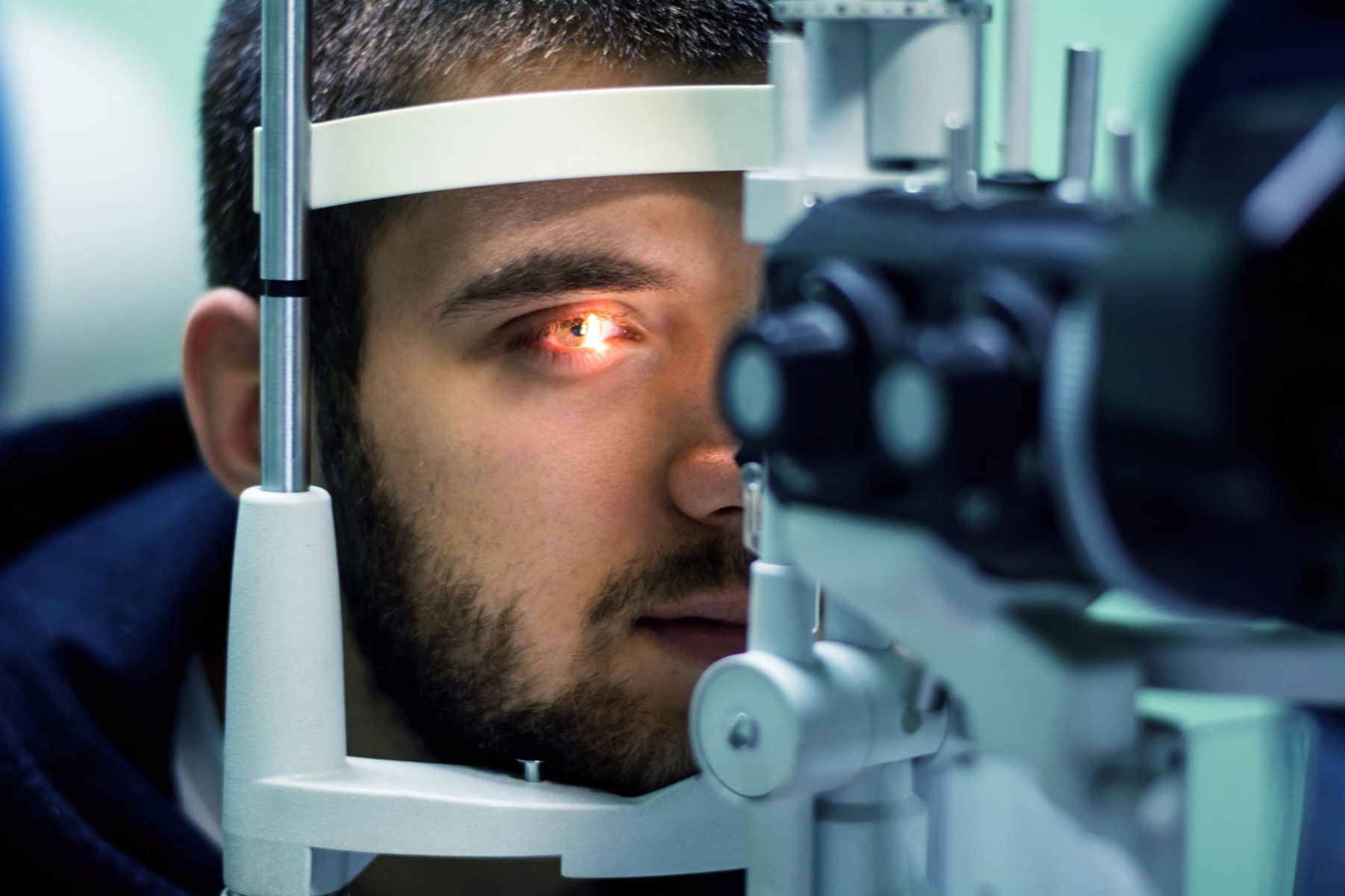Table of Contents
What Do Your Eyes Say About Your Health?
It’s not that your eyes aren’t mesmerizingly beautiful, because they certainly are. But that’s not what makes us gaze deeply into them. The truth is, when we look into your eyes, we learn a lot about you – not on an emotional level but for medical treatment purposes.
Allow us to explain. Your eyes tell a complex story, and it’s a story of your overall health. We can identify signs of heart disease, other chronic illnesses, psychological factors, and much more during a comprehensive eye examination.
Signs & Symptoms In Eyes
Your eyes can show signs of several types of cardiovascular problems, diabetes, addiction, and more. The following five issues are only a handful of the conditions that our ophthalmologists and optometrists may recognize during an eye exam.
-

Eye doctors recognize high blood pressure based on the size of the retinal arteries in relation to the veins.
High Blood Pressure
Eye doctors recognize high blood pressure based on the size of the retinal arteries in relation to the veins. High blood pressure can damage the main blood supply to the eyes, leading to bleeding in the eye, blurred vision, swelling, blood clots, damage to the nerve, and even loss of vision.
Blocked Arteries & Blood Clots
Eye care specialists may also be able to see a blood clot, fatty deposit, or other object lodged in a vein or artery. In some cases, blockages can lead to an “eye stroke,” more scientifically known as retinal artery occlusion.
Diabetes
One of the most significant complications related to undiagnosed or uncontrolled diabetes is eye or vision damage. If your eye doctor recognizes this, it’s important to make an appointment with a primary physician or endocrinologist for further diagnosis and treatment.
Eye diseases related to diabetes include cataracts, glaucoma, and diabetic retinopathy, which is characterized by blurry vision, floating spots in your vision, and possibly blindness in severe cases.
-

Eye diseases related to diabetes include cataracts, glaucoma, and diabetic retinopathy.
High Cholesterol
Known as arcus senilis, a white or gray ring around your iris can be a relatively harmless, common sign of aging. If you have a family history of high cholesterol you are more likely to have arcus senilis.
However, this symptom in individuals younger than 45 has been correlated with high cholesterol levels. High levels of bad cholesterol can clog your arteries, leading to cardiovascular disease, heart attacks, or strokes.
Myasthenia Gravis
Myasthenia gravis is a rare, chronic autoimmune neuromuscular disorder characterized by fluctuating weakness of the voluntary muscle groups.
According to the Myasthenia Gravis Foundation of America, ocular myasthenia gravis is a form of MG in which the muscles that move the eyes and control the eyelids are weakened. Symptoms include double vision, drooping eyelids, and eye closure. In some cases, people with MG only have the eye-related problems, but the ocular symptoms are often the first signs of more generalized muscle weakness later on.
Protect Your Health
If your eye doctor has recognized issues that may be related to heart disease, diabetes, high blood pressure, or other concerns, make an appointment with a specialist who can further diagnose and treat the underlying condition. Doing so can help protect both your eyes and your body from further damage.
If you are concerned about the health of your eyes or are due for a comprehensive eye exam, make an appointment with one of our eye doctors in Lake Orion, Flint, Fenton, Grand Blanc, or Lapeer.
Comments are closed.



